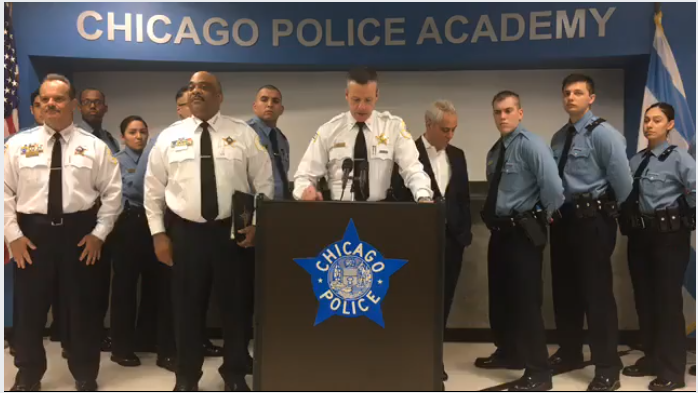April 16, 2019
New recruit class builds on two years of consecutive declines in violent crime and 20-year lows in
robberies, burglaries and motor vehicle thefts
Mayor Rahm Emanuel and Chicago Police Department (CPD) First Deputy Superintendent
Anthony Riccio today welcomed 49 new police recruits to the Department’s Training Academy,
the second class of new recruits this year. This group of new recruits is over 70 percent
minority and includes eight military veterans. This month’s recruit class follows over two years
of consecutive declines in violent crimes, including 20-year lows in robberies, burglaries and
motor thefts.
“I want to congratulate the new class of recruits, who represent not only the next generation of
Chicago police officers but also the diversity and dynamism of our great city,” said Mayor
Emanuel. “Today is the first day of a new beginning as these recruits have answered the call to
be the change and force needed to make our city safer, stronger and more secure.”
As the city celebrates the next generation of leaders in the Chicago Police Department, new
officers continue to join the Police Academy every year. Today’s 49 new police recruits build on
the City of Chicago’s two-year hiring plan to add 970 additional officers to the Chicago Police
Department, which was completed last year.
“The energy that new recruits bring to the Chicago Police Department is contagious,” said
Superintendent Eddie T. Johnson. “I am so proud of our new officers, who have each made the
decision to serve their communities. Chicago will be a better and safer place because of their
efforts.”
The ongoing hiring plan is part of Mayor Emanuel’s comprehensive public safety strategy –
including investing in proactive intervention strategies in historically divested communities,
expanding youth support services like mentoring for more at-risk youth and stimulating
neighborhood economic development with programs like the Neighborhood Opportunity Fund.
Since the start of the hiring plan in 2017, CPD has hired more than 2,500 new officers.
During six months of training at Police Academy, recruits learn all applicable laws and
protocols for being a Chicago Police Officer. In addition to physical training, they receive
instruction in procedural justice, mental health awareness, crisis intervention and deescalation, use of force, community building and critical thinking.
The first three months of their new career in law enforcement will begin under the tutelage of a
Field Training Officer. These specially-trained officers share their experiences with the new
graduates, walking them through everything from filling out paperwork to apprehending an
offender.
Following graduation, officers will have access to new tools, technology, and resources to
partner with the community and fight violent crime. That includes CPD’s district-based
Strategic Decision Support Centers which launched last month in the 20th and 22nd districts,
expanding the technology centers to nearly police district in the city. In each of the districts,
new station-based strategic nerve centers, mobile technology, and crime cameras are deployed
to assist in district-level crime strategies and investigations.
Last month, City Council approved the development of a new, state-of-the-art Joint Public
Safety Training Academy, which will deepen and strengthen the training capabilities of both
new and current police officers and allow them to train alongside the Chicago Fire Department
and Office of Emergency Management Control.
The CPD entry exam is scheduled for the weekend of June 1st. For the first time, Chicago is
partnering with the City Colleges to hold the exam at Malcolm X College. The move was made in
an effort to make the exam more accessible for people from all parts of the city. Two more
exam dates are also planned in 2019.


